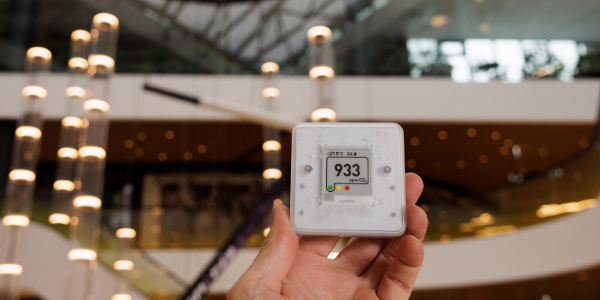First, retail is a vast and diverse sector. There is a small corner shop, a supermarket, warehouse outlets, and the size and scope of global chains. When considering this statement of fact alone, it is relatively easy to appreciate that there cannot be one building management system (BMS) design to fit the whole of retail.
Yet, there are many other reasons why a bespoke BMS design in retail is necessary. Here we explore the case for why the controls enjoyed by a retail client need to be flexible to their needs.
The pattern of working times
While you can presume that the standard opening hours of retail are 9 am to 5 pm, even on the High Street, this is no longer the case. A supermarket could now open 24 hours a day, and even in closing hours would need some form of lighting, heating and ventilation for staff filling the shelves and managing the warehouse.
A bespoke building management system can be designed in line with the clients’ working patterns but also easily adapted when needed.
Type of retail
It is not just the store’s size or the number of shops that need centralised control, but also the different requirements for the products sold. For instance, a supermarket would need cooling and refrigeration, which needs to be tightly controlled for fear of loss of bottom-line profits. However, for a shop selling art sensitive to different environmental conditions, the need to maintain the temperature and humidity is vital.
A BMS designer will sit with a client and seek all the information required about the type of retail and its demands on a building. While an off-the-shelf solution could be programmed to serve these needs, it will always come with compromises.
The environment
Some retail stores brand themselves as committing to sustainability and energy efficiency. The right BMS allows for the careful control of heating and cooling systems. It would also avoid waste with the lighting left on when not needed, but it can empower the retailer to monitor operations and become a powerful tool for energy saving.
A final consideration would be the location of the retail outlet. In a country with extreme seasons, it is useful to have a building management system responsive to the outside air temperature. While all BMS designs should include sensors to assess CO2 levels, not all systems will come with rain sensors to close skylight windows that could mean the end of a high-class clothing line, yet provide free ventilation when the weather is dry.
The case
The right building management system needs to be simple to manage and operate for the small and medium-sized retail owner and the operations manager of a large store with multiple sites. What is simple to manage and operate for one is different from the other.
For some, it will be crucial to analyse the state of the retail space, and for others, it is more important the back of house is environmentally controlled. In short, seeking the support of a BMS design consultant could mean the difference between your building enhancing the retail experience or acting as a blocker to a sale.
Cube Controls is already very active within this arena and can design your bespoke building management system for your retail space. Contact us today to learn how we can design a system personalised to your needs.




